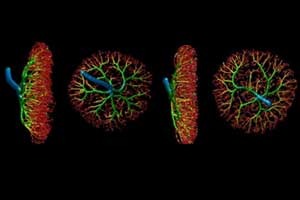- Home
- Editorial
- News
- Practice Guidelines
- Anesthesiology Guidelines
- Cancer Guidelines
- Cardiac Sciences Guidelines
- Critical Care Guidelines
- Dentistry Guidelines
- Dermatology Guidelines
- Diabetes and Endo Guidelines
- Diagnostics Guidelines
- ENT Guidelines
- Featured Practice Guidelines
- Gastroenterology Guidelines
- Geriatrics Guidelines
- Medicine Guidelines
- Nephrology Guidelines
- Neurosciences Guidelines
- Obs and Gynae Guidelines
- Ophthalmology Guidelines
- Orthopaedics Guidelines
- Paediatrics Guidelines
- Psychiatry Guidelines
- Pulmonology Guidelines
- Radiology Guidelines
- Surgery Guidelines
- Urology Guidelines
L-arginine improves birth outcomes in pregnant women

L-arginine, a dietary supplement, is an amino acid that improves blood flow and circulation and that humans get from their diet, including eggs, meat, and dairy.The Researchers from Toronto General Research Institute (TGRI) and University of Toronto conducted a study & found that Malawian women with malaria in pregnancy had altered levels of L-arginine which were associated with poor birth outcomes. The researchers have concluded that dietary supplement (L-arginine) was found to improve birth outcomes. The study has been published in Science Translational Medicine.
Preterm birth and stillbirth are leading causes of childhood death accounting for an estimated 2 million deaths per year; however, there are few safe and effective interventions. Globally many of these poor birth outcomes are associated with maternal infections such as malaria.
In an experimental model of malaria in pregnancy, supplementing the diet of pregnant mice with L-arginine increased blood vessel development in the placenta and reduced low birth weight/preterm birth and stillbirth.
Led by Dr. Chloe McDonald and Dr. Kevin Kain at the Toronto General Hospital Research Institute, University Health Network (UHN), the scientists show that supplementing the diet with L-arginine prevented malaria from depleting the L-arginine-nitric oxide (NO) pathway.
In the body, L-arginine is converted into nitric oxide, which is critical for normal placental blood vessel development and healthy birth outcomes. By the time a woman delivers, there are 250 kilometers of blood vessels in the placenta, which provide essential oxygen and nutrients to the rapidly growing baby.
"Our work shows that L-arginine is a critical component in regulating a key pathway that promotes blood vessel development in the placenta. Infections such as malaria can impair that pathway, restricting placental vascular development. Ultimately this can result in poor birth outcomes which can have long-term effects on babies who survive, including impaired brain and behavioral development," says Dr. McDonald, adding that research on safe, effective ways of promoting healthy birth outcomes are urgently needed.
Dr. Kain notes that the L-arginine-(NO) biosynthetic pathway identified in this research may be a common pathway underlying other conditions linked to poor birth outcomes, be they in low or high-income countries such as Canada.
"Our findings have broad implications not only for malaria in pregnancy (125 million pregnancies at risk each year) but also for other globally important causes of adverse birth outcomes such as preeclampsia," says Dr. Kain, who is also Science Director, Tropical Disease Unit at the Toronto General Hospital, UHN.
Since L-arginine can be given to women as a simple, safe, and inexpensive food supplement, (in peanuts, for example) in pregnancy, Dr. Kain, and Dr. McDonald are now planning human clinical trials to assess its impact on human birth outcomes.
For more details click on the link : Science Translational Medicine, 2018; 10 (431): eaan6007 DOI: 10.1126/scitranslmed.aan6007
birth outcomesblood flowdietary supplementDr Chloe McDonaldjournal Science Translational MedicineL-arginineNitric oxideplacental vascularPregnancypregnant womenScience Translational Medicine
Source : Press ReleaseNext Story
NO DATA FOUND

Disclaimer: This site is primarily intended for healthcare professionals. Any content/information on this website does not replace the advice of medical and/or health professionals and should not be construed as medical/diagnostic advice/endorsement or prescription. Use of this site is subject to our terms of use, privacy policy, advertisement policy. © 2020 Minerva Medical Treatment Pvt Ltd